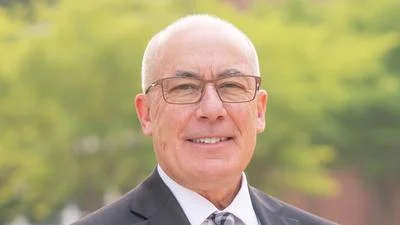As part of their work in the master of science in biomedical sciences program, Charles Chang and Morgan Lee have spent their first year doing research on cultures.
Yeast cultures.
With the assistance of Bryce Taylor, PhD, assistant professor of biology, they are working in the lab to develop yeast strains capable of better industrial performance, including the creation of biofuels like ethanol. Their efforts are continuing the work Taylor did as part of his post-doctorate work at the University of Washington.
“What we are trying to do is optimize yeast that will be well suited for different applications,” Taylor explained. “The way we do this is through an evolutionary process. Yeast used in industrial settings encounter a novel environment they have never encountered before, and oftentimes it is bad for them.”
Yeasts used for beer or bread have been specialized over hundreds of years and are well-adapted to the environmental conditions they face during food production. Yeasts used for industrial work encounter new and sometimes stressful surroundings they are not adapted to deal with, like high temperatures or the presence of toxic chemicals. For instance, some biofuel producing yeasts are fed a sugary substance that contains acids that yeast struggle to tolerate. This research hopes to change that.
“What Charles and Morgan are doing now is systematically exposing yeast to some of the acids they might experience in this process. Over time, if the yeast gets a mutation that makes them more resistant to the acid, they are going to thrive. At the end, we can pick out the most resistant and see if they have improved properties that might be applicable in an industrial setting,” Taylor said.
Lee is no stranger to this type of research, having done work in the lab while earning her undergraduate degree at the University of Nebraska at Kearney.
“I used to work with staphylococcus and antibiotic resistance in my undergraduate work. Working with microbes is kind of my thing and, knowing Dr. Taylor works with yeast and its evolution, it tied well with my interest in home brewing,” she said.
That experience helped her hone in on an individual project for her second year that hits close to home.
“For my project, I will be looking to enhance the function of two genes that create flavor compounds to make more flavorful beer and wine,” she said. “To do this, we will be exposing yeast to concentrations of sterols or fatty acids that can be toxic to the yeast.” It turns out that the flavor production genes can also protect the yeast from these toxic compounds. “Through this exposure, we hope, over time, they will improve their function in the presence of this compound.”
Chang’s undergraduate work in biology at the University of California San Diego was not as focused on research so this work has been a new, welcome experience.
“I learned these things conceptually but never had to apply them outside of typical lab study. Conducting research in this way is new and has been interesting,” he said.
When his second year begins, Chang will be working on multi-drug resistance in the yeast.
“There are mechanisms involved in the exporting of drugs out of the cell. My project will try to create an inhibitor molecule that will prevent the cell from removing drugs from the inside, and hopefully increase the cell’s sensitivity to various drugs,” he said.
Taylor is excited to see the progress both students will have with their individual projects moving forward.
“The things they are doing for their personal projects are based on concepts that have been floating around in my mind,” he said. “They have taken them and made them concrete using ideas that I would not have come across. It has been a great collaboration.”
The master of science in biomedical sciences program is designed to serve as an academic record enhancer postbaccalaureate pre-medical/pre-health program. This program is specifically intended for students who have taken the required undergraduate science coursework to apply to medical school or other graduate-level health professional programs.
For more information on the biomedical sciences program, visit loras.edu/biomedical.
Original source can be found here.




 Alerts Sign-up
Alerts Sign-up